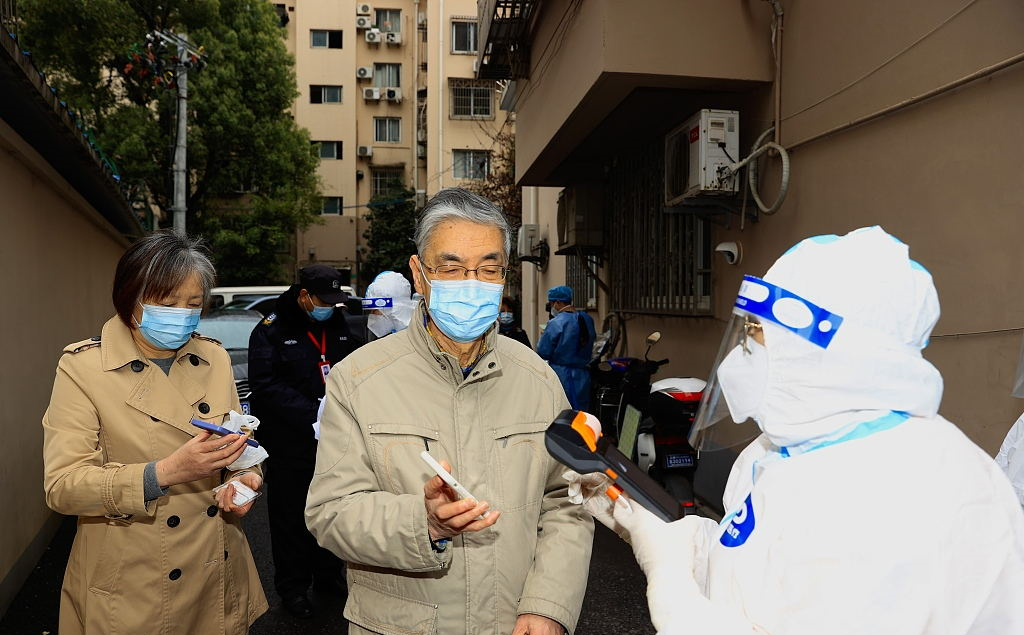Volunteers reach out to lone seniors in Shanghai


Volunteer answers call for help from sick elderly
After the latest wave of epidemic hit Shanghai, Xu Yixing, a media professional and a member of the post-2000 generation, joined a WeChat group that offers assistance to those in need of medical services.
Xu said many of those seeking help are seniors who have chronic underlying diseases, such as diabetes and hypertension. When their medicines run out, they are not able go out to buy them due to the lockdown, and also find buying through online delivery services difficult.
"Many elderly people have not heard of Meituan or FlashEx (two online delivery platforms), or online hospitals. And for many of those aged 60 or above, the only function of a smart phone they know how to use is sending messages on WeChat, and for those above 75, even that is difficult," said Xu.
Xu and his friends teach such seniors to buy medicines online or help them contact online hospitals.
Sometimes, there are much more thorny problems.
In one case, an elderly with uremia required hemodialysis treatment. Xu and other volunteers first helped him get a permission from the local residential neighborhood committee to allow him to go out. Then, they helped hail a taxi to send him to hospital.
As the elderly lives in Pudong area, the east of the Huangpu River, and the hospital is in Puxi, the west of the river, two areas that are under different lockdown rules, the taxi had to turn around at the crossing point, where the elderly was transferred to another car and sent to the hospital. And it was the same for the trip back.
"It was a grueling experience for the elderly," said Xu.
Xu said once seniors have developed a sense of trust in volunteers, they would ask the young people many questions like whether the novel coronavirus can be transmitted through toilet? Or whether the virus can spread into the room through window?
"People of my generation are more self-centered. In comparison, many elderly people are quite warm-hearted and are eager to provide help," said Xu.
"One elderly man in his 80s or 90s, who had just received a stent surgery, and could barely keep himself steady while walking, insisted to be a volunteer. And he only gave up the idea after repeated dissuasion," he said.
























